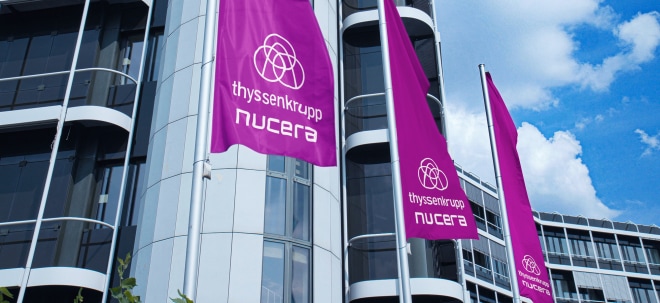Basking Biosciences Doses First Patients in Part B of Phase 2 Stroke Trial, Unlocks $27.5 Million Financing Tranche, and Appoints Julia C. Owens, Ph.D. as Chief Executive Officer
-Financing supports execution of Phase 2b RAISE trial evaluating BB-031, an investigational reversible thrombolytic for acute ischemic stroke, and the planned Phase 1 study of BB-025, its fast-acting reversal agent-
-Current CEO Richard Shea transitions to President and Chief Operating Officer-
RESEARCH TRIANGLE, N.C., Oct. 22, 2025 /PRNewswire/ -- Basking Biosciences (Basking), a clinical-stage biopharmaceutical company developing the first reversible thrombolytic therapy for acute ischemic stroke (AIS), today announced the first patients dosed in Part B of its Phase 2 RAISE trial of BB-031. BB-031 is an investigational RNA aptamer targeting von Willebrand Factor (vWF), a key mediator of clot formation and stabilization. By promoting clot dissolution and restoring blood flow to the brain, BB-031, along with its complementary rapid-acting reversal agent, BB-025, has the potential to significantly expand access to timely, effective treatment for patients with AIS.
Progression into Part B, supported by encouraging early results from Part A and the recommendation of the Data Safety Monitoring Committee (DSMC), triggered the release of the second $27.5 million tranche of the company's $55 million financing. First announced in January 2024, the financing is led by ARCH Venture Partners, with participation from Insight Partners, Platanus, Solas BioVentures, RTW, Longview Ventures, and others. The new funds will support the execution of Part B of the Phase 2 RAISE trial and a planned Phase 1 study of BB-025.
Basking also announced the appointment of Julia C. Owens, Ph.D., as chief executive officer. Dr. Owens brings extensive leadership experience in biopharmaceutical company building and drug development, having served as CEO of Ananke Therapeutics and founder and CEO of Millendo Therapeutics. She has held board roles at both emerging and publicly traded companies and currently serves on the board of Biotechnology Innovation Organization (BIO) and other organizations. As CEO, Julia will focus on steering the company as it enters a new stage of growth. Richard Shea, who has served as Basking's CEO since the company's founding in 2019, will transition to president and chief operating officer, ensuring leadership continuity and a sustained focus on Basking's track record of operational excellence as the company advances into later-stage clinical development.
"Basking's innovative science, its unparalleled dedication to the stroke community, and the caliber of its existing leadership drove my interest in joining the team," said Julia C. Owens, Ph.D., chief executive officer of Basking Biosciences. "As I deepen my understanding of the company and its science, I'm energized to partner with the leadership team to build on encouraging Phase 2a results and realize the potential of BB-031 to reshape stroke care."
"Despite progress in care, most patients with acute ischemic stroke remain ineligible for currently approved therapies, underscoring the need for new approaches," said Shahid M. Nimjee, M.D., Ph.D., co-founder and chief medical officer of Basking Biosciences, and Professor of Neurosurgery and Surgical Director of the Comprehensive Stroke Center at The Ohio State University Wexner Medical Center. "Our commitment is to change that by advancing BB-031 through Phase 2b and beyond, to deliver a therapy that expands access and addresses this critical gap in stroke care."
About RAISE
RAISE is a two-part, multicenter, randomized, double-blind, placebo-controlled Phase 2 clinical trial evaluating BB-031 in patients with acute ischemic stroke who present within 24 hours of symptom onset.
- Part A enrolled 48 patients across three ascending-dose cohorts (0.5, 1.5, and 4.0 mg/kg vs. placebo). Results informed dose selection for Part B. Originally planned for 36 patients, enrollment was increased to 48 to double the size of the top-dose cohort based on the encouraging safety profile observed, providing greater confidence in dose selection for Part B.
- Part B, originally designed to enroll approximately 120 patients, has been expanded to 180 participants. The increase reflects confidence in BB-031's profile shown in Part A and is intended to enable evaluation of potential treatment effects on the NIH Stroke Scale (NIHSS), a measure correlated with meaningful functional outcomes. Part B will evaluate BB-031 at doses of 2.0 mg/kg and 6.0 mg/kg in a stepwise design, alongside a placebo group.
The primary objectives of the trial are to assess safety, tolerability, and pharmacokinetics /pharmacodynamics, with secondary endpoints evaluating vessel recanalization, infarct volume, NIHSS score change, and functional outcomes at 90 days. The trial is being conducted at sites across North America and Australia, with anticipated site activation in the United Kingdom.
About BB-031
BB-031 is an investigational RNA aptamer designed to inhibit von Willebrand Factor (vWF), a key mediator of platelet adhesion and thrombus formation. By precisely targeting this critical pathway, BB-031 is intended to enable targeted, controllable thrombolysis that could extend the treatment window and broaden treatment opportunities for patients with acute ischemic stroke. BB-031 is paired with an active reversal agent, BB-025, whose unique "on-off switch" mechanism enables rapid control of antithrombotic activity in the event of bleeding or urgent surgical intervention to provide even greater physician confidence during acute stroke treatment.
About BB-025
BB-025 is an investigational, rapid-acting reversal agent, designed to specifically bind and neutralize BB-031. Administered as a single intravenous bolus, BB-025 enables rapid and durable reversal of BB-031's thrombolytic activity.
About Acute Ischemic Stroke
Acute Ischemic Stroke (AIS) is the leading cause of combined mortality and morbidity worldwide, accounting for 87 percent of all strokes. According to the World Health Organization, 15 million people suffer a stroke each year, resulting in more than 5 million deaths. Incidence is increasing globally with aging populations, and in high-income countries alone, annual direct and indirect stroke-related costs are projected to exceed $826 billion by 2050.
Currently available therapies, including intravenous thrombolytics and mechanical thrombectomy, reach no more than 20 percent of patients, even in the best stroke centers. As a result, 80 percent or more of patients with ischemic stroke receive no acute intervention today, underscoring the urgent need for new approaches.
About Basking Biosciences
Basking Biosciences is a clinical-stage biopharmaceutical company dedicated to changing the way potentially life-threatening blood clots are treated. Its novel therapies are designed to significantly improve safety and efficacy, broadening access to many more patients. The company's lead candidate, BB-031, is the first rapid-onset, short-acting thrombolytic therapy with a reversal agent, currently in development for the treatment of acute ischemic stroke. By inhibiting von Willebrand Factor (vWF), a key driver in clot formation, BB-031 offers targeted, potent thrombolytic activity that, together with its reversal agent, could enable more patients to receive timely, life-saving treatment after stroke. For more information, visit www.baskingbiosciences.com and follow us on LinkedIn.
![]() View original content to download multimedia:https://www.prnewswire.com/news-releases/basking-biosciences-doses-first-patients-in-part-b-of-phase-2-stroke-trial-unlocks-27-5-million-financing-tranche-and-appoints-julia-c-owens-phd-as-chief-executive-officer-302590857.html
View original content to download multimedia:https://www.prnewswire.com/news-releases/basking-biosciences-doses-first-patients-in-part-b-of-phase-2-stroke-trial-unlocks-27-5-million-financing-tranche-and-appoints-julia-c-owens-phd-as-chief-executive-officer-302590857.html
SOURCE Basking Biosciences Inc.



